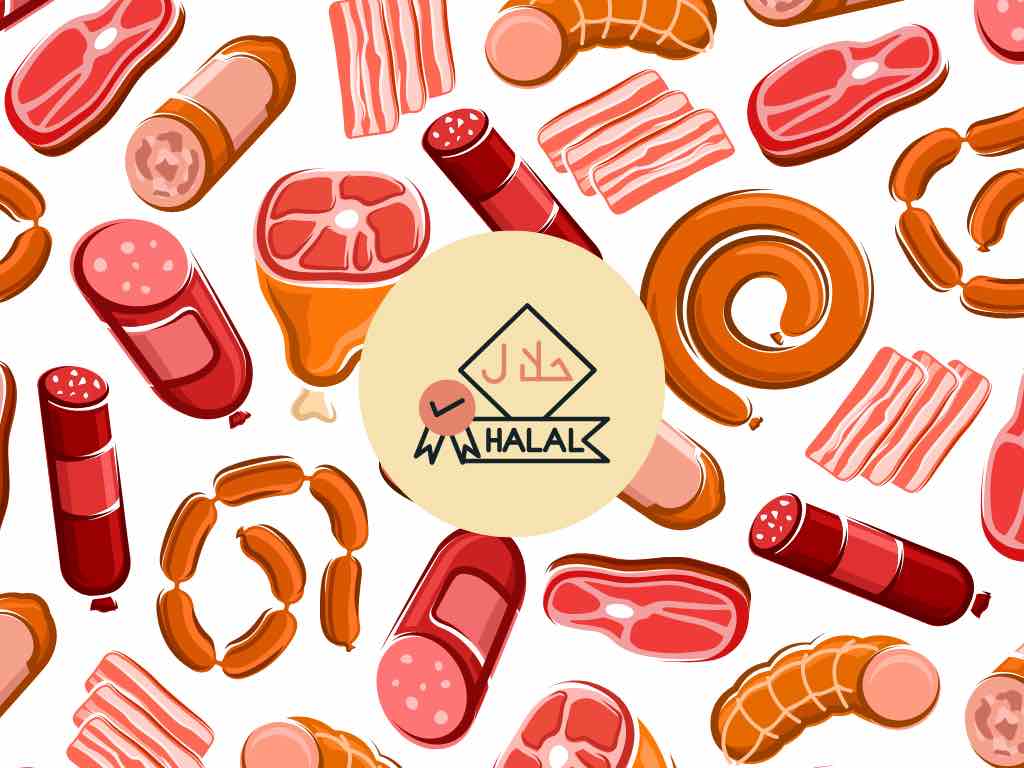
The Muslim Diet: A Comprehensive Guide to Halal Eating
|
|
Time to read 5 min
Welcome to One Stop Halal!
Written by: Najma A.
|
|
Time to read 5 min
The dietary habits of Muslims are guided by Islamic principles that dictate what is permissible (Halal) and what is forbidden (Haram). These dietary rules are derived from the Quran, the Hadith (sayings and actions of the Prophet Muhammad), and centuries of Islamic scholarship. The Muslim diet is not only about adherence to religious laws but also promotes health, ethical treatment of animals, and social responsibility. This blog will delve into the principles of the Muslim diet, the benefits of eating Halal, and practical tips for maintaining a healthy and fulfilling diet as a Muslim.
Halal is an Arabic term that means "permissible" or "lawful." For a food item to be considered Halal, it must meet several criteria:
Haram refers to anything that is forbidden under Islamic law. The following are the main categories of Haram foods:
Adhering to a Halal eating is not only about fulfilling religious obligations; it also offers numerous health benefits. Here are some key advantages:
The Halal method of slaughter ensures that the blood is completely drained from the animal's body, reducing the risk of contamination and promoting cleanliness. This process also ensures that the meat is healthier and free from harmful bacteria.
By avoiding alcohol and intoxicants, Muslims benefit from a lifestyle free from the harmful effects of these substances. This leads to better physical and mental health, as well as enhanced social well-being.
The Muslim diet encourages the consumption of pure and wholesome foods, such as fresh fruits, vegetables, grains, and legumes. These foods are rich in essential nutrients, vitamins, and minerals, promoting overall health and vitality.
Welcome to your favorite butcher shop. We carry custom cuts of beef, chicken, lamb, goat, grass-fed beef, wagyu, deli, and more. We ship across the United States in 1-2 business days.
The Muslim diet is also deeply rooted in social and ethical considerations. It promotes:
Islamic dietary laws emphasize the humane treatment of animals. The principles of Halal slaughter ensure that animals are treated with respect and kindness, reducing their suffering and ensuring a more ethical food supply.
Muslims are encouraged to consider the ethical implications of their food choices. This includes supporting fair trade practices, sustainable agriculture, and labor rights. By choosing Halal products that align with these values, Muslims contribute to a more just and equitable food system.
The Muslim diet also fosters strong community and family bonds. Shared meals, especially during religious occasions like Ramadan, strengthen relationships and promote a sense of belonging and unity. The communal aspect of food in Islam is a powerful tool for building and maintaining social cohesion.
Maintaining a Halal diet requires knowledge, planning, and mindfulness. Here are some practical tips for ensuring that your diet adheres to Islamic principles:
When shopping for groceries, it is essential to read labels and check ingredients to ensure that products are Halal. Look for Halal certification symbols on packaging, which indicate that the product has been verified as Halal by a reputable certification body.
Cooking at home allows you to have complete control over the ingredients and preparation methods used in your meals. This ensures that your food is Halal and can be prepared in a clean and ethical manner. Experiment with traditional and modern Halal recipes to keep your meals interesting and nutritious.
When dining out, choose restaurants that offer Halal options. Many restaurants now cater to the dietary needs of Muslims and provide Halal-certified dishes. When in doubt, ask the restaurant staff about their Halal practices and ingredients.
To maintain the purity of Halal food, it is important to avoid cross-contamination with Haram substances. Use separate utensils, cutting boards, and cookware for Halal and non-Halal foods, and clean all surfaces thoroughly before and after food preparation.
Stay informed about Halal dietary laws and keep up-to-date with the latest developments in Halal certification and food production. Join online forums, follow Halal food blogs, and participate in community discussions to enhance your knowledge and stay connected with other Muslims who share your dietary values.
At One Stop Halal, you will find assorted collections of butcher cuts for various kinds of animals. All our products are locally harvested in the USA, ethically raised, and hand-slaughtered the old-fashioned way: by a man with a knife.
Halal certification plays a crucial role in ensuring that food products meet Islamic dietary requirements. Certification agencies inspect and verify that the ingredients, processing methods, and handling of food products comply with Halal standards. This provides Muslims with the assurance that the food they consume is permissible and free from contamination with Haram substances.
Halal certification is particularly important for processed foods, meat products, and restaurants. When shopping for groceries or dining out, look for reputable Halal certification symbols to ensure that the food meets your dietary needs.
Adhering to a Halal diet has a profound impact on the daily lives of Muslims. It influences their food choices, social interactions, and ethical considerations. By following Halal dietary laws, Muslims demonstrate their commitment to their faith and their desire to live in accordance with Islamic principles.
The Muslim diet, guided by the principles of Halal and Haram, is a comprehensive approach to eating that encompasses religious, health, ethical, and social dimensions. By adhering to Halal dietary laws, Muslims ensure that their food is pure, wholesome, and ethically sourced. The health benefits, ethical considerations, and social aspects of the Muslim diet contribute to overall well-being and a sense of community.
Maintaining a Halal diet requires knowledge, planning, and mindfulness, but it is a rewarding practice that aligns with the values and teachings of Islam. By following the tips and guidelines outlined in this blog, Muslims can enjoy a healthy, fulfilling, and spiritually enriching diet.

© 2026 One Stop Halal, Inc.